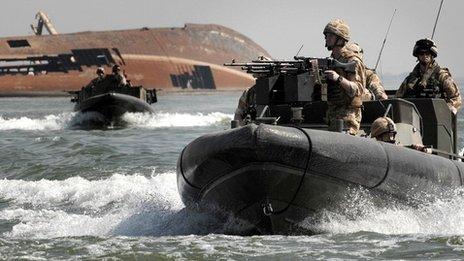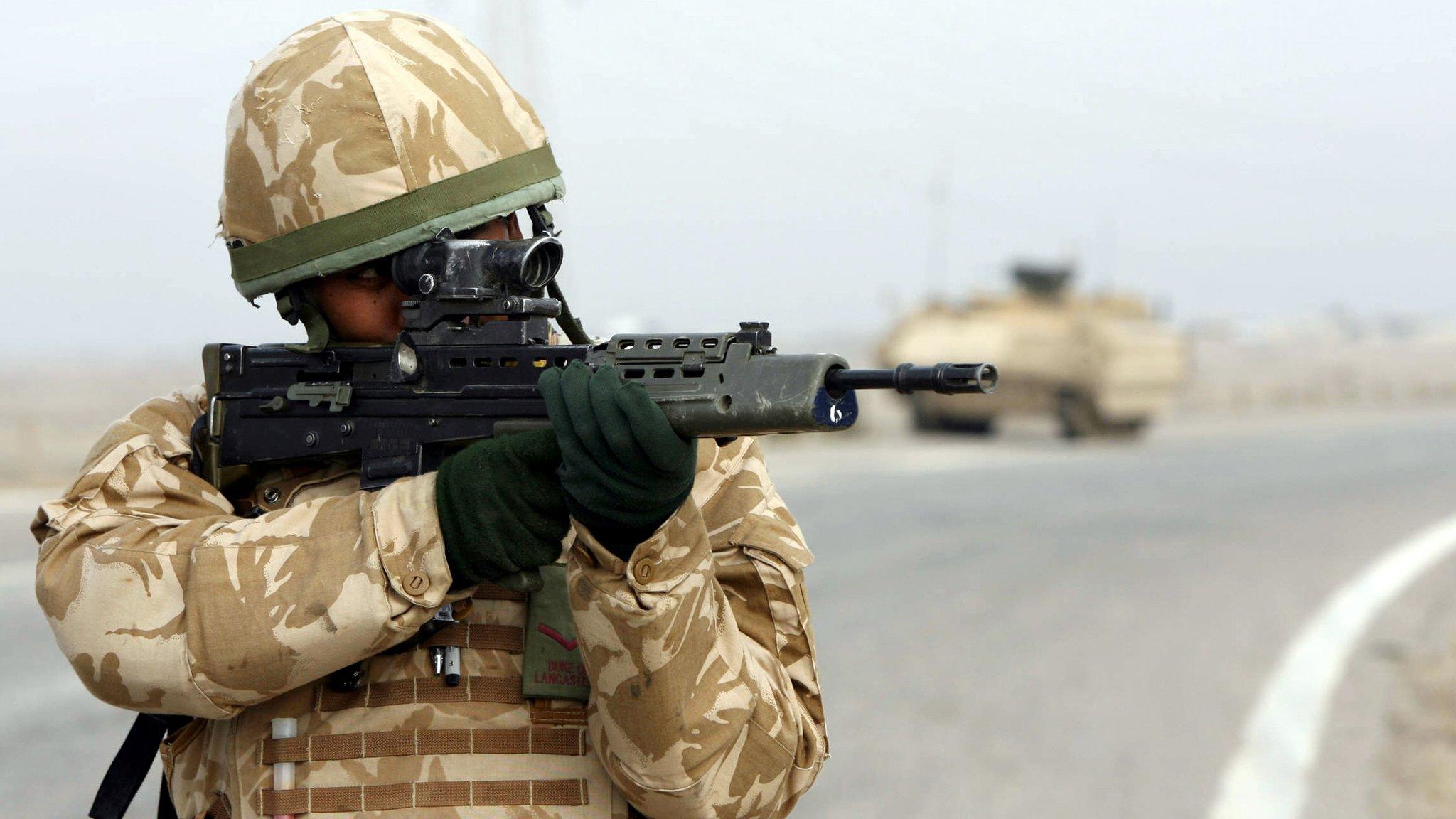Blair leak fears curbed Cabinet Iraq talks - O'Donnell
- Published
Sir Gus O'Donnell said Tony Blair thought Cabinet meetings were not a "safe space"
Tony Blair was "reluctant" to hold Cabinet discussions about Iraq because he thought details would be leaked, the UK's top civil servant has said.
Sir Gus O'Donnell told the Iraq Inquiry that Mr Blair did not believe Cabinet was "a safe space" in which to debate the issues involved in going to war.
The number of informal meetings meant records of discussions were not "as complete" as he would like, he added.
Mr Blair has said there was frequent and robust Cabinet discussion of Iraq.
Several former mandarins have questioned how thoroughly Cabinet discussed the decision to go to war and how well informed ministers were but Mr Blair has said colleagues were briefed and had opportunities to rase concerns.
In particular, he told the inquiry in his second evidence session that he would be "astonished" if ministers were unaware of the military preparations than were going on in the summer of 2002.
Sir Gus O'Donnell, who was the top civil servant at the Treasury in the run-up to the 2003 war before becoming Cabinet Secretary and head of the Civil Service in 2005, is the latest senior official to appear before the Chilcot inquiry as it completes its final series of public hearings.
He told the inquiry that the Blair government had fewer Cabinet meetings than his immediate predecessors, including Lady Thatcher, and his successors as prime ministers because he took a "certain view" about what could be achieved through collective decisions.
'Ruthless'
Asked why this was the case, Sir Gus said he believed the prime minister had concerns about how watertight discussions in Cabinet would be.
"I think one of the reasons the prime minister was reluctant, at times, to take as many Cabinet discussions as possible was because he felt that they would become very public, very quickly," he told the inquiry.
Sir Gus said Cabinet should ideally be a "safe space" in which ministers were listened to and could "openly challenge" policy but in the knowledge that discussions would remain confidential and that Cabinet would ultimately agree a "single position".
"You have to understand why would he [Mr Blair] not go for these meetings and I think it was because we would have thought it was not a safe space."
While Cabinet must remain the "ultimate" decision-making body, he said officials needed to be "ruthless" about leaks and other issues which eroded trust and meant sensitive issues could not be discussed freely.
Several Cabinet ministers, led by Robin Cook and Clare Short, were unhappy with policy on Iraq, Mr Cook resigning in protest on the eve of war - although a clear majority backed the invasion.
Notes of meetings
Sir Gus said Mr Blair preferred to work with "smaller" ad-hoc groups of ministers and advisers and this had implications for how notes of meetings were taken.
"The nature of formality was diminished. If you reduce the formality, you don't have such good records of what happened and when you come to do audits, it is not as complete as any cabinet secretary would want it to be.
"By virtue of that, some of the people that are excluded from decisions can feel, just that, excluded and you don't get the full contribution of everyone to a joined-up decision."
Lord Turnbull, Sir Gus O'Donnell's predecessor, has said the Cabinet "did not know the score" when backing the invasion as it had not seen crucial papers setting out the different options for action against Iraq.
But, in his evidence, Mr Blair has insisted that there was frequent and robust discussion of Iraq in Cabinet and that he would be "astonished" if ministers were unaware of the military preparations than were going on in the summer of 2002.
Secret documents
At the start of Friday's hearing, inquiry chairman Sir John Chilcot said he would not be raising the subject of confidential correspondence between Mr Blair and President George W. Bush in the run-up to the invasion which Sir Gus has ruled cannot be published for national security reasons.
The inquiry, which has seen the material, has previously expressed its "disappointment" at Sir Gus's decision.
During the session, Sir Gus also indicated that one of the UK's two current deputy national security advisers could be axed due to government spending cuts.
He said the National Security Council established by David Cameron was working well but that the Cabinet Office - which funds the posts - needed to look at its resources "very carefully" as it faces a 35% cut in its core budget over the next four years.
"We will need to look very carefully at the composition of that team [National Security Secretariat] and there will be some reductions there."
Public hearings will conclude on Wednesday - when former foreign secretary Jack Straw will appear for the third time - and the inquiry has said it hopes to hand its report to the prime minister in the coming months.
- Published5 July 2016

- Published21 April 2015

- Published27 January 2011